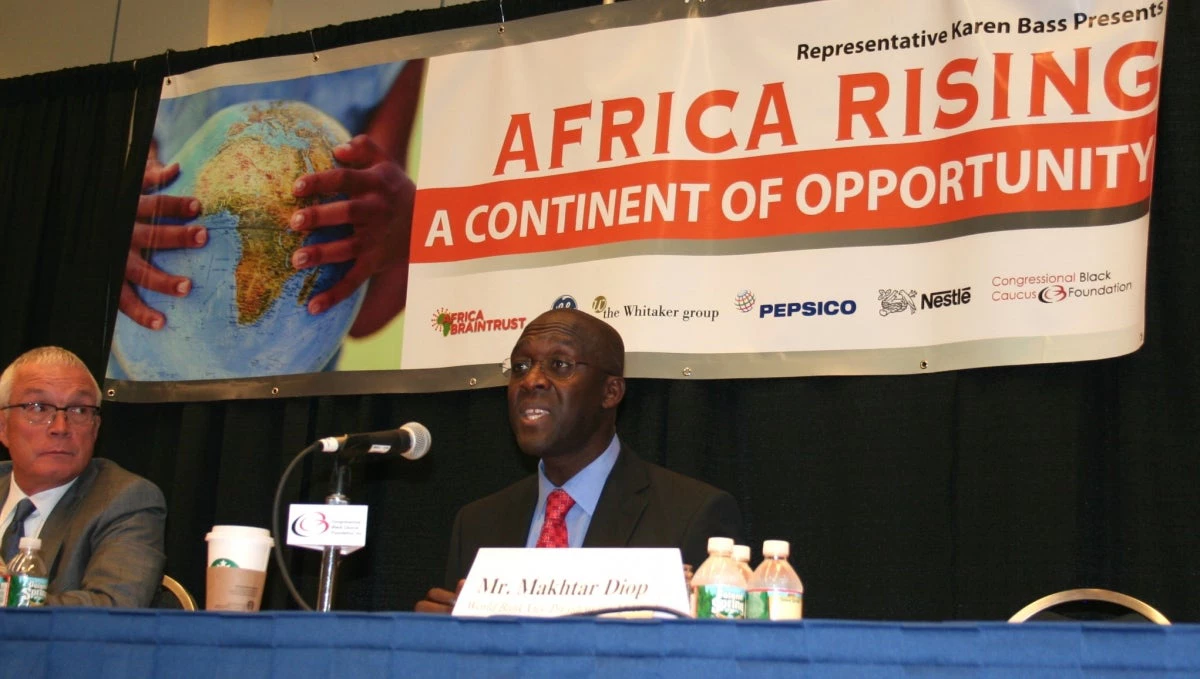At the recent Congressional Black Caucus (CBC) Legislative week held in Washington DC, African Diaspora was the focus. Economic development—supporting Africa’s priorities in the areas of jobs, education, gender, health, youth—was one of the main threads that ran through the week-long discussions.
At the session “Africa Rising: A Continent of Opportunity”, Makhtar Diop, the World Bank’s Vice President for Africa, was one of three panelists discussing “Africa’s Growing Economies.” Africa’s average growth has exceeded five percent per year and accelerated to six percent before the global economic crisis. Performance of the 22 non-oil exporting countries averaged higher than four percent annual growth for the decade between 1998 and 2008, all of which he attributed mainly to better macroeconomic policies.

The power of the African Diaspora is little known. More than 179 million people of African descent live outside of Africa in North America, Europe, South America, the Caribbean and Asia. The recent migrant /Voluntary Diaspora and Involuntary/historical Diaspora are both defined as the “African Diaspora” by the African Union (AU). The Voluntary Diaspora sends to Africa close to $40 billion per year, much of it for consumption needs of parents and extended family in home countries. In this connection, remittances have been known to reduce the poverty headcount ratio (percent of population below the national poverty line) significantly in several low income countries—by 11 percentage points in Uganda, six percentage points in Bangladesh and five in Ghana. Another substantive amount of money is invested in Africa’s economic development in specific projects by both categories of the African Diaspora, sometimes in collaboration with each other as well as external partners.
Mimi Alemayehou, Executive Vice President of Overseas Private Investment Corporation (OPIC) said her organization’s investment to Africa went up 300 percent and that the fastest growing countries are in Africa. She gave an example of a $500 million loan for Ghana’s health and agriculture sectors as well as another $250 million loan to projects in Nigeria by the African Diaspora, alongside American partners.
During Legislative Week, hundreds of participants at each of the week-long sessions examined ways to leverage the Diaspora dollar for Africa’s development.
On trade, Diop said that it is within Africa’s reach and interest to remove the internal trade barriers which currently discourage neighboring countries from doing business with each other. He assured the audience that the World Bank is committed to helping develop the Diaspora Bond to attract institutional investors to Africa, including pension funds.
“Diaspora bonds”—debt instruments issued by countries, or potentially, a sub-sovereign entity or a private corporation to raise financing from its overseas diaspora—have proved very effective in harnessing diaspora funds. For example, Israel and India have raised $35-40 billion using these bonds.


Join the Conversation